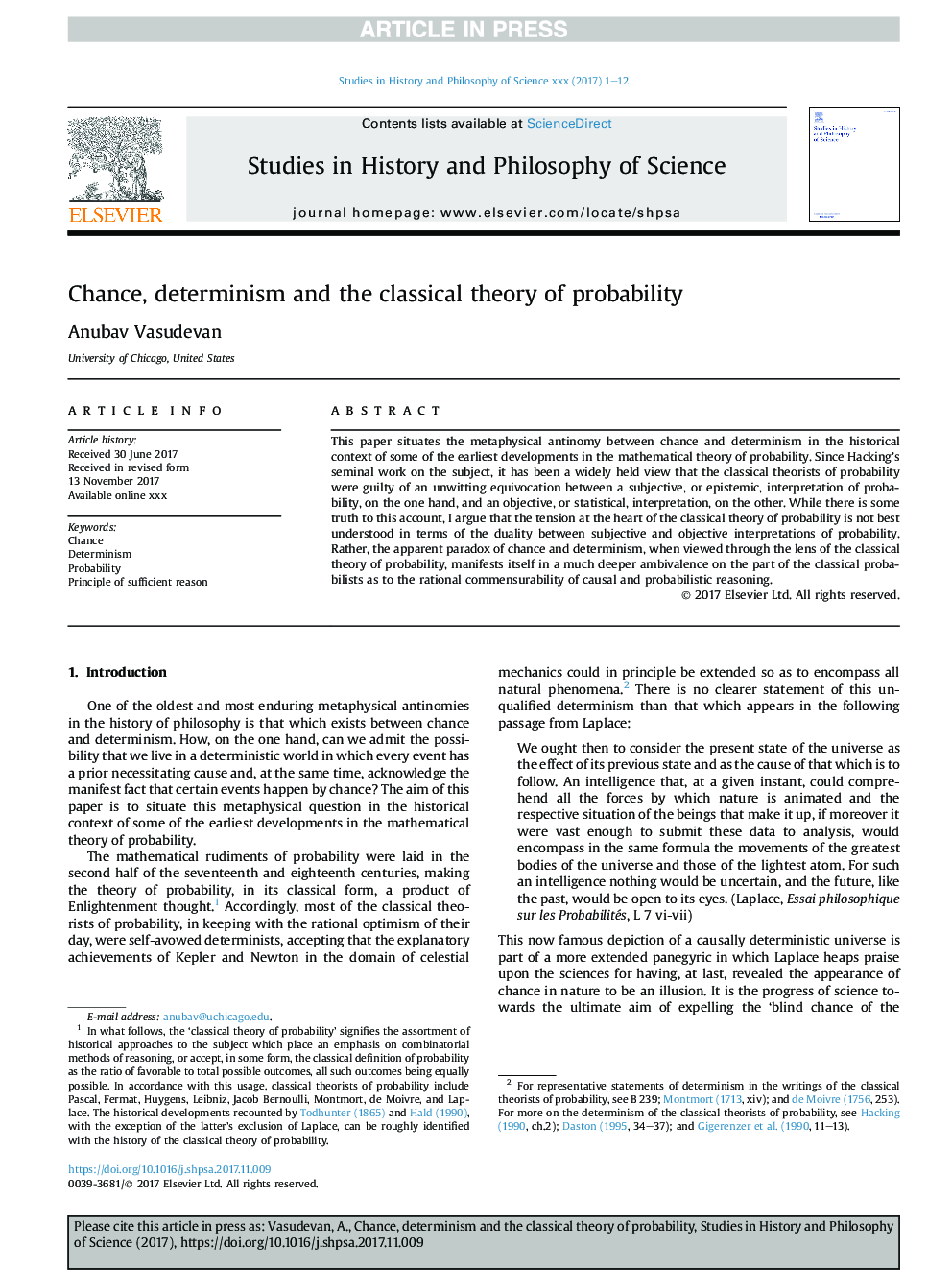| Article ID | Journal | Published Year | Pages | File Type |
|---|---|---|---|---|
| 7551587 | Studies in History and Philosophy of Science Part A | 2018 | 12 Pages |
Abstract
This paper situates the metaphysical antinomy between chance and determinism in the historical context of some of the earliest developments in the mathematical theory of probability. Since Hacking's seminal work on the subject, it has been a widely held view that the classical theorists of probability were guilty of an unwitting equivocation between a subjective, or epistemic, interpretation of probability, on the one hand, and an objective, or statistical, interpretation, on the other. While there is some truth to this account, I argue that the tension at the heart of the classical theory of probability is not best understood in terms of the duality between subjective and objective interpretations of probability. Rather, the apparent paradox of chance and determinism, when viewed through the lens of the classical theory of probability, manifests itself in a much deeper ambivalence on the part of the classical probabilists as to the rational commensurability of causal and probabilistic reasoning.
Keywords
Related Topics
Social Sciences and Humanities
Arts and Humanities
History
Authors
Anubav Vasudevan,
